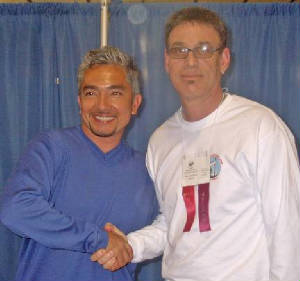Dog’s have a reputation for having good night vision. After all, the wolves they are descended from do most of their hunting at night, so it would make sense that our pet dogs have some ability to see in the dark as well.
In fact, dogs can probably see 5 times better than we can at night. This is possible due to several biological features, and can provide interesting insight into how your dog sees the world around her.
How Your Dog’s Eyes Work
The differences in your dog’s night vision and yours are due to a few adaptations in the dog’s eye. Both human and dog eyes have a pupil, cornea, lens, and a retina with rods and cones that enable us to interpret light and color into images. But dogs also have:
- Bigger Pupils - A larger pupil means that more light can reach the eye to make it easier to process sights.
- More Rods - Dogs have very few cones (which interpret colors) but many more rods (which interpret light) than we do.
- Wider Set Eyes - For both day and night vision, eyes closer to the sides of their heads give dogs better peripheral vision.
- Tapetum Lucidum - The most important part of night vision, the tapetum is a body part humans do not have. It is a group of mirror-like cells that reflects light within the dog’s eye so the dog can see and process light twice. The tapetum is also the reason dog’s eyes seem to glow at night.
Your dog still needs some light to be able to see. If you were to go camping on a cloudy night, everything would be pitch black to her. But if there is moonlight, a street lamp, or ambient lighting, your dog can see most of the details around her.
But if dogs have great night vision, why do some pet owners notice their dog seems to be frightened to go outside in the dark? The good news is that your dog probably isn’t seeing something scary in the dark. Instead, she is on alert. Nighttime has different sounds and smells, making what may be a familiar environment during the day seem threatening. Exposing your dog to darkness in the same way you would introduce any new situation can help make her more comfortable.





